I am twenty-six years old, and in June 2023 I graduated from Al-Azhar University-Gaza (AUG) Faculty of Medicine, in Northern Gaza. Two months into my internship at Al-Aqsa Hospital in Deir al-Balah, the Gaza War started.
I was assigned to the emergency department for fifteen months, serving as a junior surgeon to treat patients injured by bombs—shrapnel wounds in the hips, back and head; crushed arms and legs; burns everywhere; difficulty breathing; internal bleeding.
I tried to block out the shouts, crying and moaning and focus on the task and the patient in front of me—while, in the background, bombs were exploding. Neither the flood of patients needing help nor the explosions ever seemed to quit, and I felt that I just couldn’t continue.
After completing my fifteen months of duty, I transferred to the polio-vaccinations ward for a month, then switched to managing nutrition for the International Medical Corps. Several months later, I learned of the Family Doctor Initiative, a program run by Dr. Salam Khashan in the middle strip of Gaza. There, I felt I would be able to use more of my doctoring skills.
Finding this post was a tremendous relief. The pace was less hectic, and I could take more time with patients. For the past ten months, I’ve worked in one of three tents. Each tent has a doctor working alongside a nurse, a pharmacist and other staff. My tent has four rooms: the exam room, where I assess patients; the procedure room, where we dress wounds and give nebulizer treatments and injections; the breast-feeding room, staffed by a lactation consultant; and the pharmacy.
I work Saturday through Thursday, caring for twenty to fifty patients a day. Patients come in with chronic health problems like high blood pressure, diabetes and thyroid conditions, and they also often come with gastroenteritis or other digestive complaints, because food is scarce, and people eat anything that is, or was, edible.
Water is precious. Due to the scarcity of water and the poor living conditions, bathing is difficult, and lice and skin rashes are common.
Despite these difficulties, I’ve been relieved to find that I can still help my patients. A few months back, I saw Mohammed, an eighteen-month-old boy with beautiful eyes framed by long, black lashes. His asthma improved when I prescribed a nebulization, but unfortunately, his mother Leila couldn’t afford the drug I’d recommended, and when she brought Mohammed back a week later, he was worse.
This time, I told them to go to the hospital—but just days later, they were back.
“We couldn’t reach the hospital,” said Leila. “We don’t have money to hire a taxi, and I couldn’t find anyone to take us.”
This time our driver took Mohammed to the hospital, and the hospital staff admitted him—a welcome validation of our efforts. Two weeks later, when Leila came in to be treated for her own leg wound, she told us that he was doing better.
When a seventy-one-year-old gentleman named Sharif came in with a swollen foot, I thought at first that it was a skin infection—that he’d stepped on something. However, his whole leg was swollen, and his blood pressure was elevated. When I treated him with hydrochlorothiazide (a diuretic), his blood pressure can down, and so did the swelling. It was very rewarding to see Sharif’s health improve under my care, and I’ve seen him twice more since.
Medications have been limited; for example, I couldn’t give patients more than four acetaminophen (Tylenol) tablets at a time. And we’ve run out of glucose strips, so I can no longer check my patients’ blood sugars.
Over the past month it has grown much worse, and we’ve run out of every type of drug, so I have no medications to give my patients. I still do what I can to comfort them.
It takes thirty minutes to travel by car from my house to the family-medicine tent. When I’m at work, I worry that our house might be bombed. Thankfully, so far our house and those around have not been attacked, and my wife and extended family have not had to evacuate. My biggest challenge in getting to work is finding the money to pay for gas for the car; it’s very expensive.
At this point in my medical training, I need to take the medical-license exams—but I cannot, because I don’t have the money to pay my tuition fees. I owe the university 4,500 Jordanian dinars (US $6,000) for my education, and I can’t take the exam until I pay my school fees. When I have enough money to pay the fees and take the exam, I’ll become a fully licensed physician.
Meanwhile, it is summer, and inside the tents it’s very hot. The wind blows clouds of dust everywhere.
The Israeli Defense Forces have been given a new mission, so the bombs fall day and night. Food is even harder to find and nearly impossible to afford on my salary. I search for food for my elderly parents and for my wife, who is pregnant, due in January 2026.
I hope our baby will be born into a Gaza where there is peace. It is very difficult. We hope for peace. And we keep going—because we must.



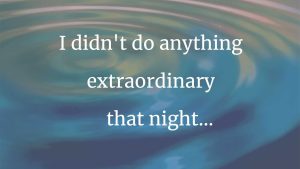
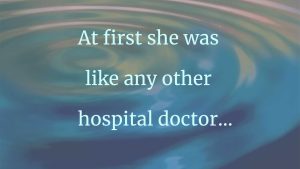
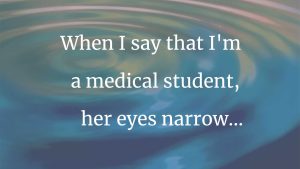
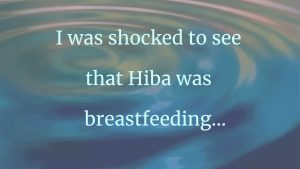
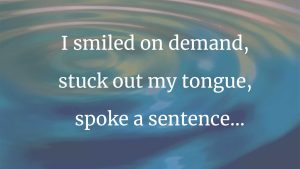
28 thoughts on “Report From Gaza: Seeing Patients Among the Bombs”
Thank you for your piece. This is a stark reminder that, no matter who conducts a war and for whatever reason, it is mostly human beings on the ground that pay the price in a heavy way. God bless those professionals who care for the sick and wounded and the dying, even when the bombs fly around them.
I too would like to help contribute to payment of Sami’s tuition fees. Paul – please email me with details on how to make that happen. Thank you!
I’ve emailed you information on how to do that. Thanks, Claudia.
My brother has been doing his best and all he can with the lack of everything, to help all patients in need in Gaza, I’m very proud of him
Your comment worth it
I also would like to make a donation toward Sami’s tuition.
Les, I’ve sent you an email explaining how you can do that.
thank you for sharing this articulate, powerful, heartbreaking writing. Inshallah the baby is born in a free falastine ya rab.
Thank you for your commitment and exceptional service to your patients in Gaza. The conditions you and your patients are experiencing break my heart. Please let us know how we can help you. Until I hear more, I will pray for you, your family, and your patients. May many blessings be bestowed on you.
Mary Carolyn, I’ve sent you an email in response.
I would also be interested in contributing to this author’s repayment of medical debt.
Geoff, I’ve sent you an email in response.
How can we help?
Larry, I’ve sent you an email in response to your question.
How can we donate towards the fees ? Please make this happen
It’s so important
Caroline, I’ve sent you an email in response to your question.
I’d also like to help pay Sami’s tuition bill. Pulse or Sami, will you let us know how?
Lucas, I’ve sent you an email in response to your question.
I want to donate to Sami’s school funding.
Same here please let me know how to do so
Josh, I have sent you an email in response to your request.
Sheila, I’ve sent you an email explaining how.
Is there a way to donate to your school funding?
I too would like to know if there is a way to donate to Sami’s education funding?
Karen, I have sent you an email in response to your request.
Hi Paul,
Is there a way to send over-the-counter meds directly to Sami or his clinic? I could send some on a regular basis if they will arrive safely.
Chris
Dana, I have sent you an email explaining how you can do that.
Thank you. Remaining present in the middle of war is the highest form of service. Well written and shared.
I believe having the desire to help people and not having the means is one of the most difficult realities of being a healthcare provider. Doctor, I pray you continue showing up. Though few are the instances where you’d feel like you’re making a difference, every day, you do.